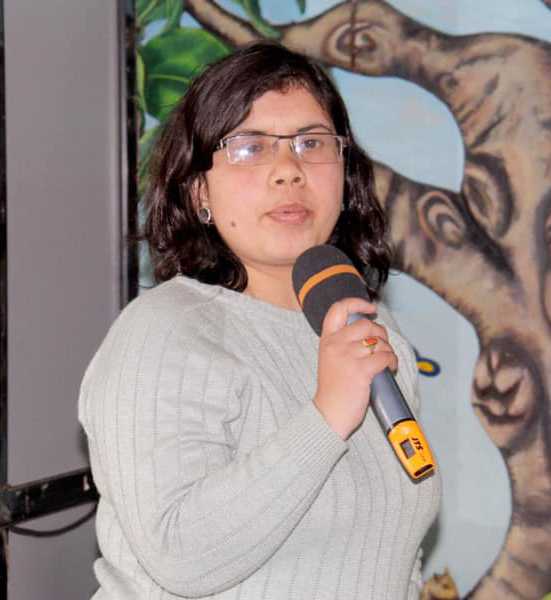About The Founder

With over a decade of hands-on experience working with blind women and addressing cross-disability issues in Nepal, I have come to understand that a holistic approach—one that tackles the social, cultural, political, and economic empowerment of marginalized women with disabilities—is the most effective way to address the challenges they face. My name is Ichhya K.C., and I am a blind woman from madhesh, Nepal. Having experienced marginalization due to my visual impairment, I am deeply motivated by my own journey and the stories of other blind women to advocate for the rights of women with disabilities as well as women in general.
Through my work and personal experience, I have observed the severe stigma and discrimination that single blind women—whether unmarried, divorced, or widowed—face in a deeply patriarchal society. Disability is often viewed as a weakness, and blind individuals are made to feel dependent on others for care, reinforcing the perception that they are a burden. Women, in particular, are often relegated to second-class status. In this context, women with disabilities are often considered unfit to be wives or mothers, leading to their social, political, and economic exclusion. I have faced these negative societal attitudes toward my blindness for the past 25 years, and it is this experience that drives my commitment to changing the narrative and improving the lives of women with disabilities.
In Nepali society, having a blind daughter is often seen as a curse, as many believe she is useless and a burden to everyone around her. When I was 10 years old, I was rejected from enrolling in a local school simply because I am blind. Watching others, including my sister, go to school while I stayed behind left me feeling deeply saddened. It took me a year and a half to find the courage to stand up for myself. One day, I confronted my parents and told them to stop wasting money or pampering me—if they truly cared about me, they should send me back to school. It was then that I began to see the endless possibilities for my future.

But my journey faced another setback in my third year of college when I lost my beloved father. With his death, meeting our basic needs became a struggle. Despite holding a postgraduate degree, I turned down several job opportunities because of my declining vision. Yet, during those challenging days, I realized that while my eyesight was deteriorating, my vision for life was expanding. The struggles I faced taught me invaluable lessons.
As a child, I dreamt of becoming a doctor to serve poor patients. However, as I grew older and accepted my blindness, I redefined my aspirations and began to see myself as a “social doctor.” This shift led me to the disability sector, where I volunteered and met countless blind women who were struggling to meet even the most basic needs, like food and shelter. Through their stories, I came to understand both the direct and indirect forms of discrimination they faced.
Now, my mission is to prove that single blind women, too, can find their own identity and carve out a meaningful life. To achieve this, I founded Pahichan, which means “identity,” a nonprofit organization dedicated to supporting single and marginalized women with disabilities in Nepal. After completing a seven-month international leadership training at the Kanthari Institute in Kerala, India, in 2018, I legally registered Pahichan-Nepal. The organization is officially recognized by the Kathmandu Central District Office, the Social Welfare Council, and the Tax Office.
At the heart of Pahichan is a communal house I have established, where blind women can live and work with dignity. Our approach focuses on rehabilitation and rights, empowerment and education, advocacy and accessibility, livelihood development, and fostering a life of identity. I believe that independence is crucial in helping individuals build courage and confidence, and that is what we aim to cultivate at Pahichan—a space where women can not only survive, but thrive.

